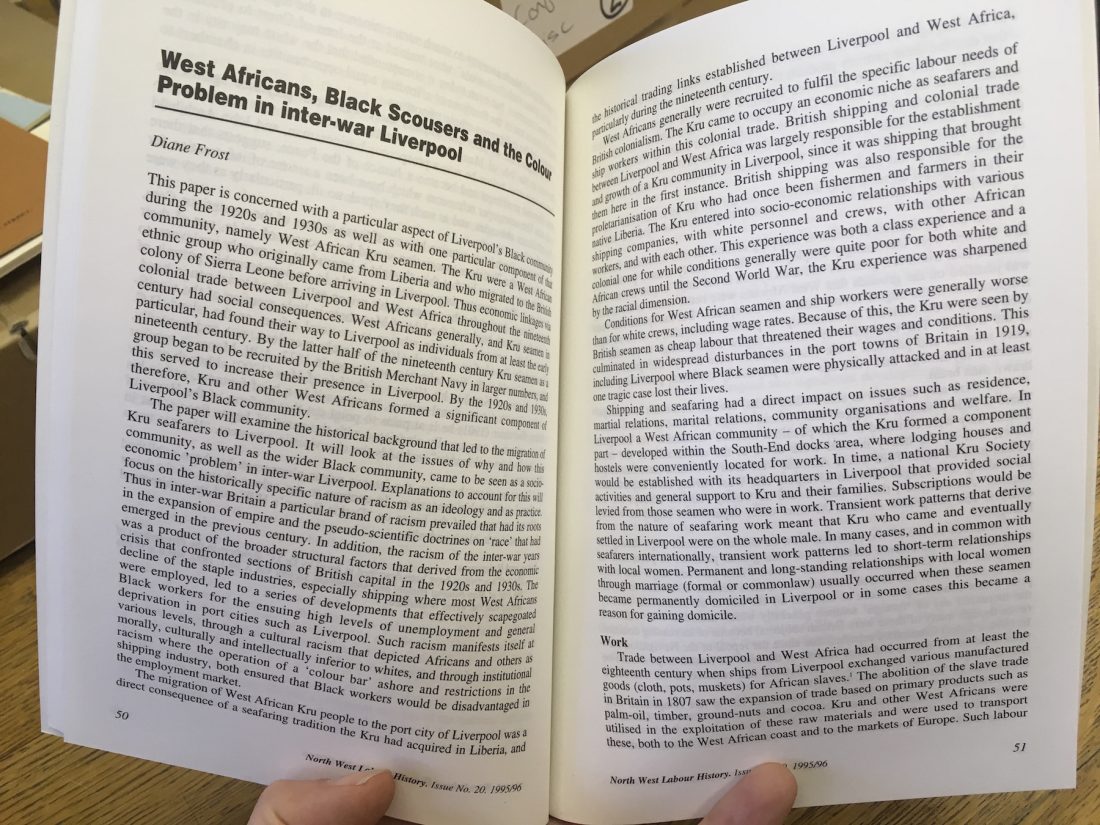Continuing the search for archive material pertaining to the social history of Liverpool, I spent some time going through various collections in the Library Of The Working Class Movement.
Continuing the search for archive material pertaining to the social history of Liverpool, I spent some time going through various collections in the Library Of The Working Class Movement.
Based in Salford, Greater Manchester, The Library Of The Working Class Movement is an archive of 200 years of the working class live, and specifically the class struggle in the UK, including collections from The Trade Unionist Movement, The Suffragettes, The Communist Party etc.
The archive contains a phenomenal amount of records, leaflets, books and ephemera from all sort of facets of the class struggle. As it relies on donations form individuals and organisations, their archives lean towards the social history of Greater Manchester. But, it seemed worth spending some time in for two reasons: Firstly, Liverpool and Manchester were both historically part of the county of Liverpool, before the counties were re-organised, so they was a lot of overlap in terms of activism and organisation of the working class. Secondly there doesn’t seem to be an equivalent archive specifically for Merseyside.
It’s worth mentioning how amazing the staff at the archive were, and the contrast between it and the Liverpool Records Office was pretty pronounced. While the records office was staffed by efficient librarians who were great at dealing with the administration of maintaining and retrieving materials from the archive, they had little or no knowledge of the actual materials the archive contained, and the procedures for accessing and handling the materials contained were incredibly fixed (all materials had to be handles with gloves, only 10 items from the archive could be requested at one time etc). The Library of the Working Class Movement, on the other hand is staffed largely by volunteers who are incredibly knowledgeable and enthusiastic about working class history. Requests for materials result in box after box of from the archive, which you are left to rummage through:
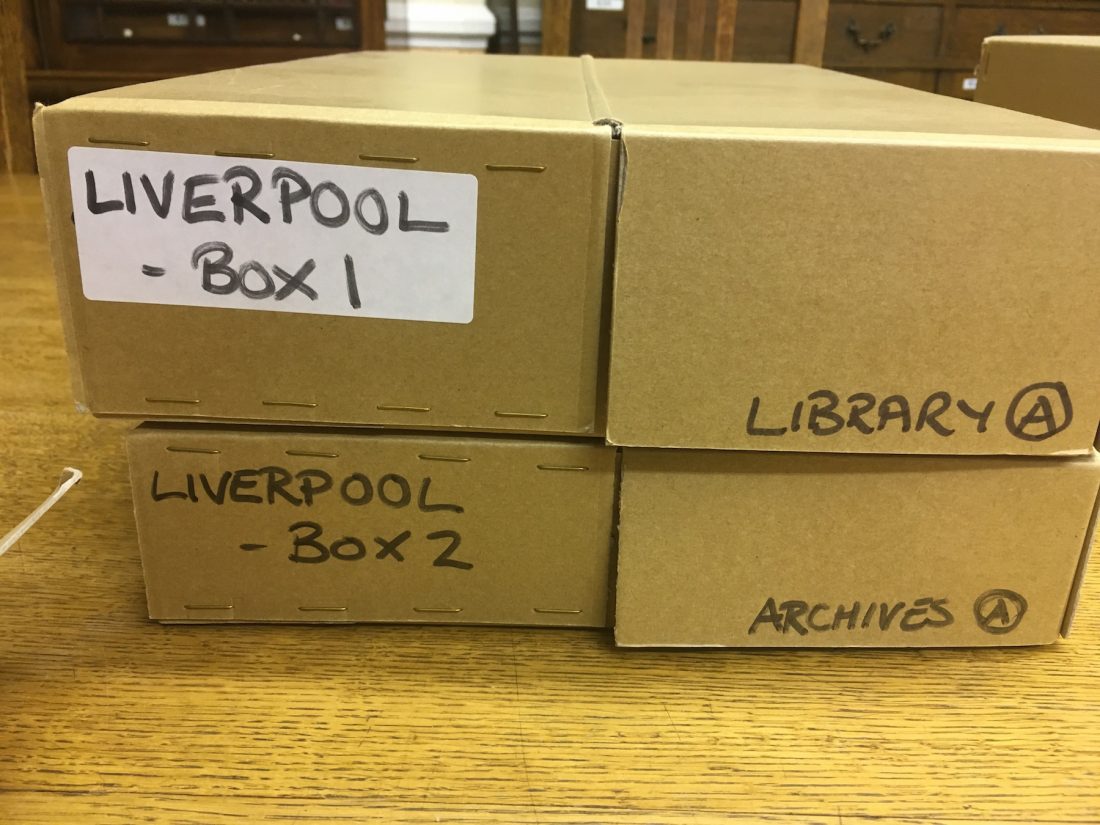
In terms of content, a lot of the materials pertaining to Liverpool were left wing publications such Flame. These generally contained articles and notes from various conferences and meeting, and were a mishmash of really interesting moments in social history, and the predictable infighting between the various factions of the left wing movement. There is something really revealing in these in terms of how much continuity there is in the issues being discussed then and now. A lot of these publications are from the 70’s and 80’s and the same conversations about public sector cuts, the patriarchy, racism etc are still going on:
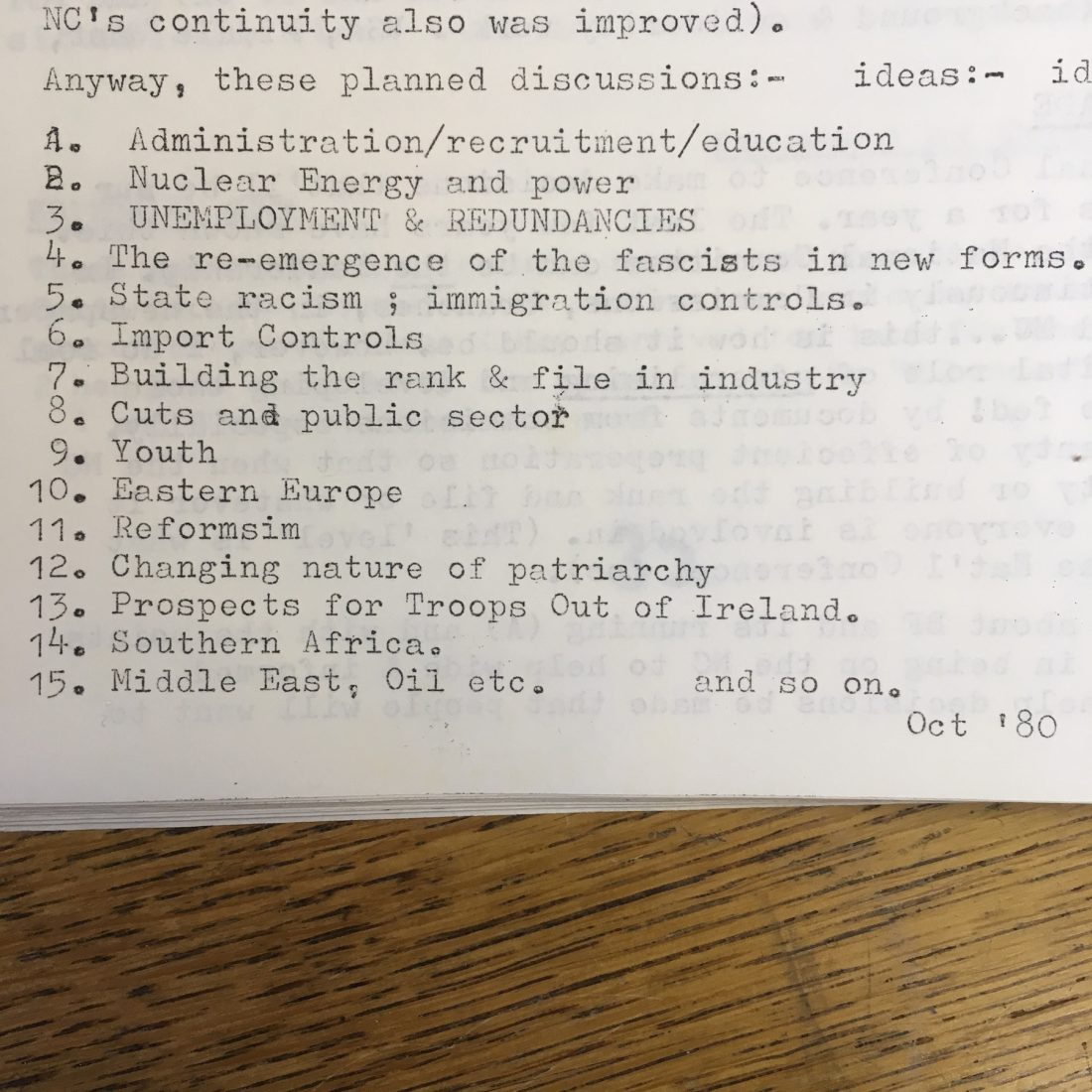
Aside from these, there was a great collection of books, leaflets and the like produced largely by the Trade Unionist movement. These revealed the long history of radical, co-ordinated action in Liverpool, the long history of Black population, and the problematic connections between them.
There were numerous pamphlets discussing workers strikes and action by sailers and dockworkers going back to the seventeen hundreds:
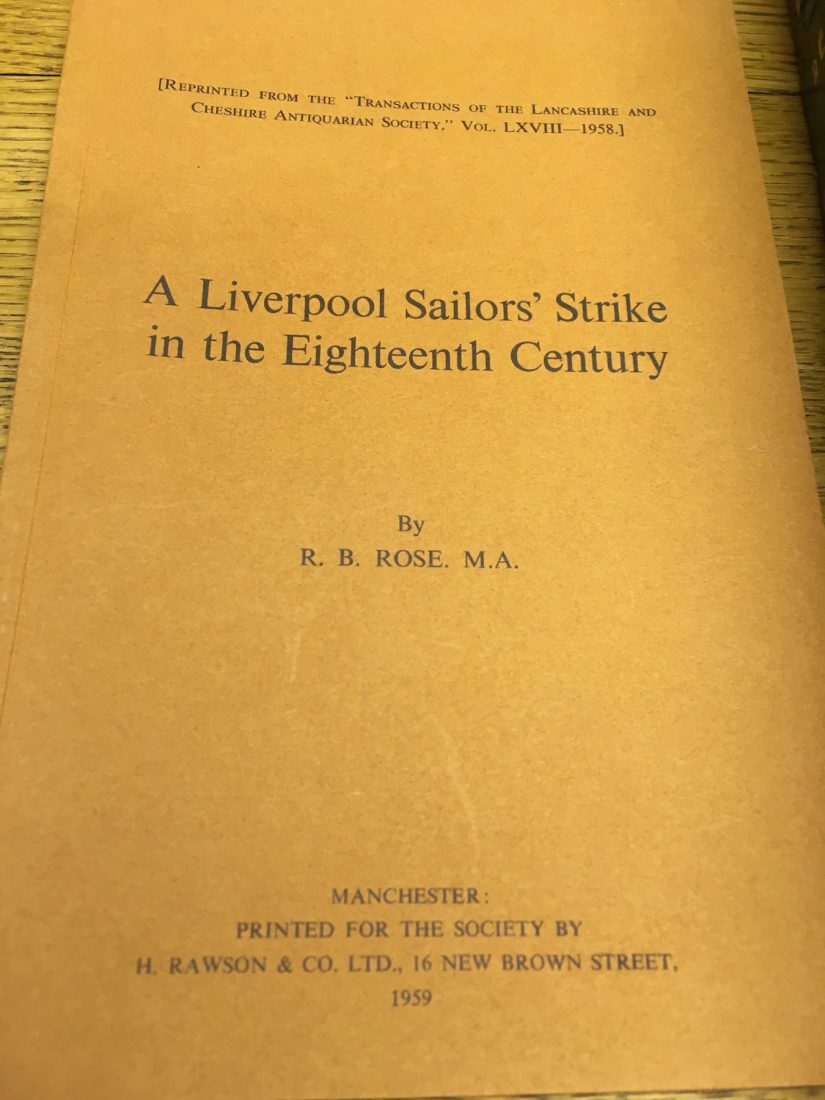
There was also a lot of material pertaining to the black community in Liverpool 8. This is famously one of the oldest black communities in Europe, with black sailors from Africa and that Caribbean ending up in Liverpool. There are also records of the Liverpool connection to the slave trade. The historic connections Liverpool, as well as cities like Bristol had to slavery as trading cities for the British Empire have been fairly well documented in recent years, but what was still shocking to see was the illustration of slaves on Liverpool dockside. It’s easy to imagine that Britain’s connections to slavery was limited to the trade between far away parts of the world. The idea of slaves being brought too and from Liverpool is still pretty shocking to have to face head on:
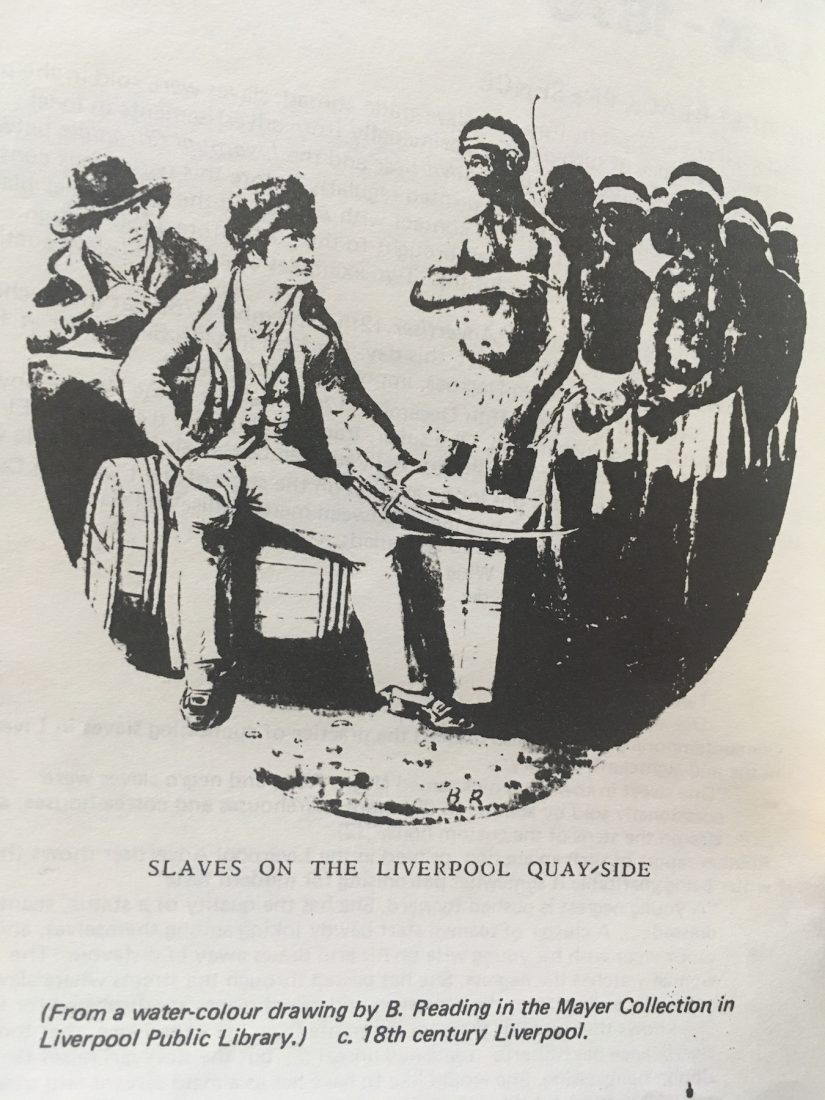
The complicated integration between these was in terms of the trade unionist action against what they perceived to be workers wages being suppressed by the competition from cheap immigrant labour. Again the continuity between the perceived issues of immigration then and now, and the complications of racism/ protectionism within working class movement are pretty striking:
